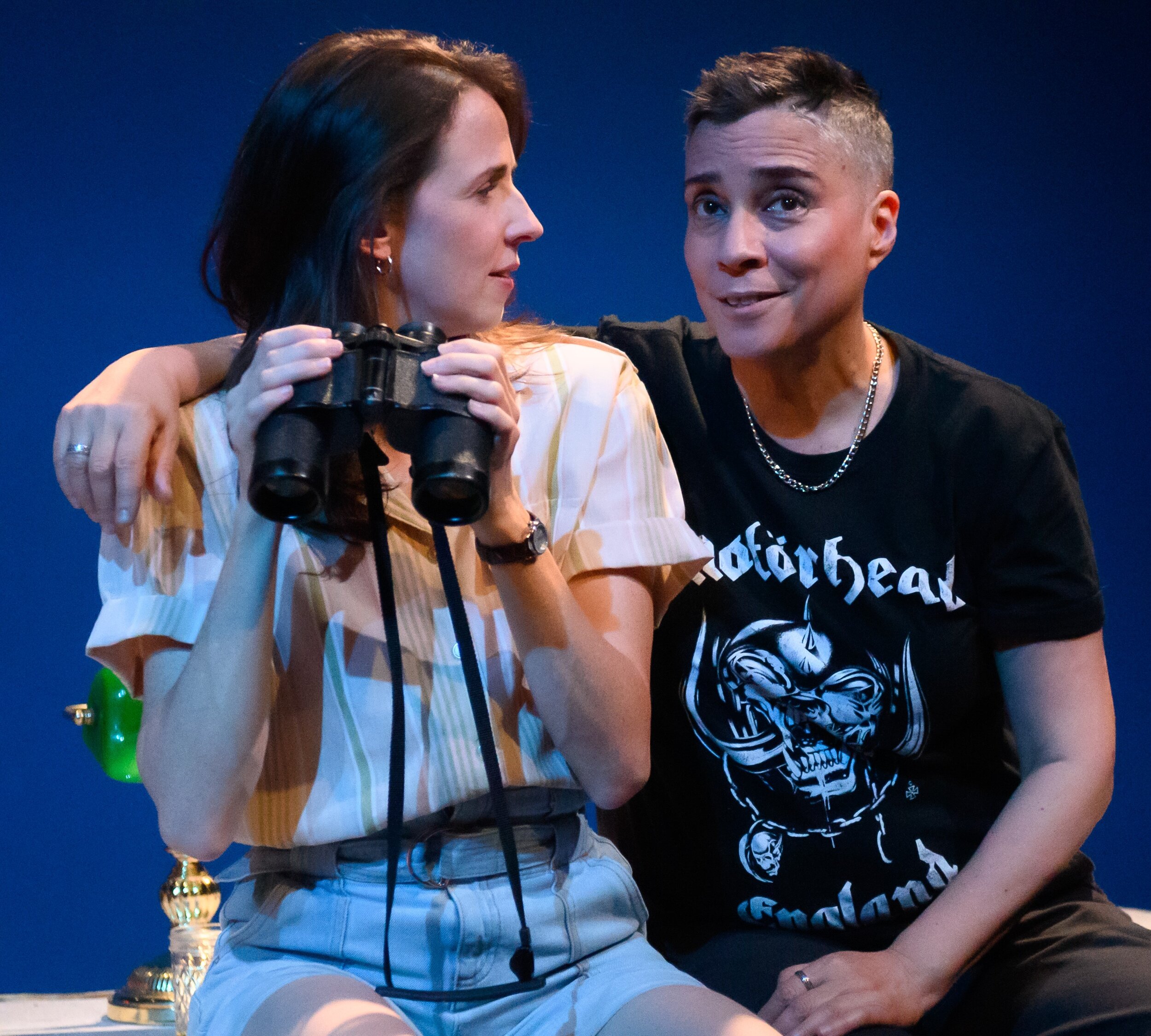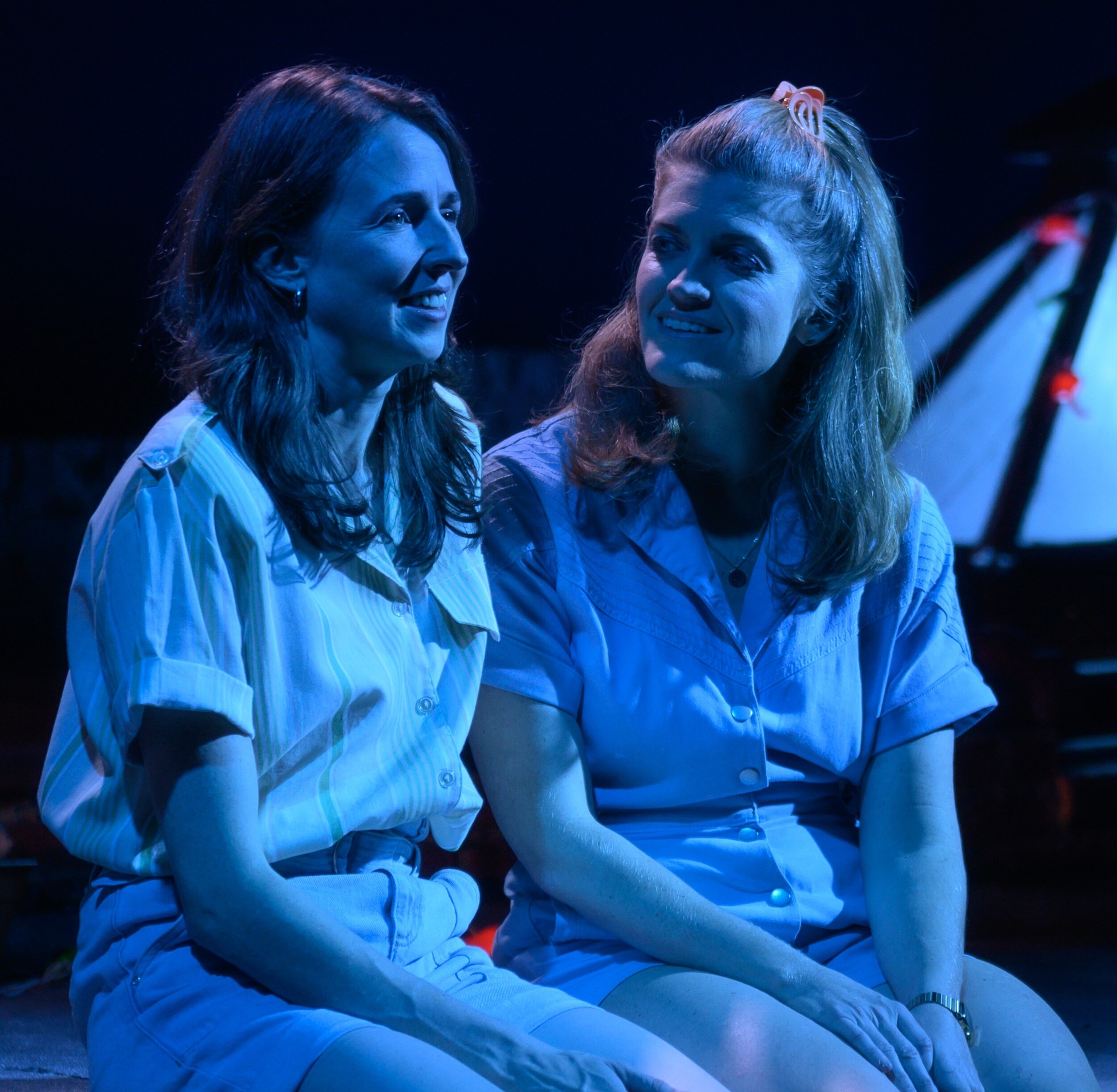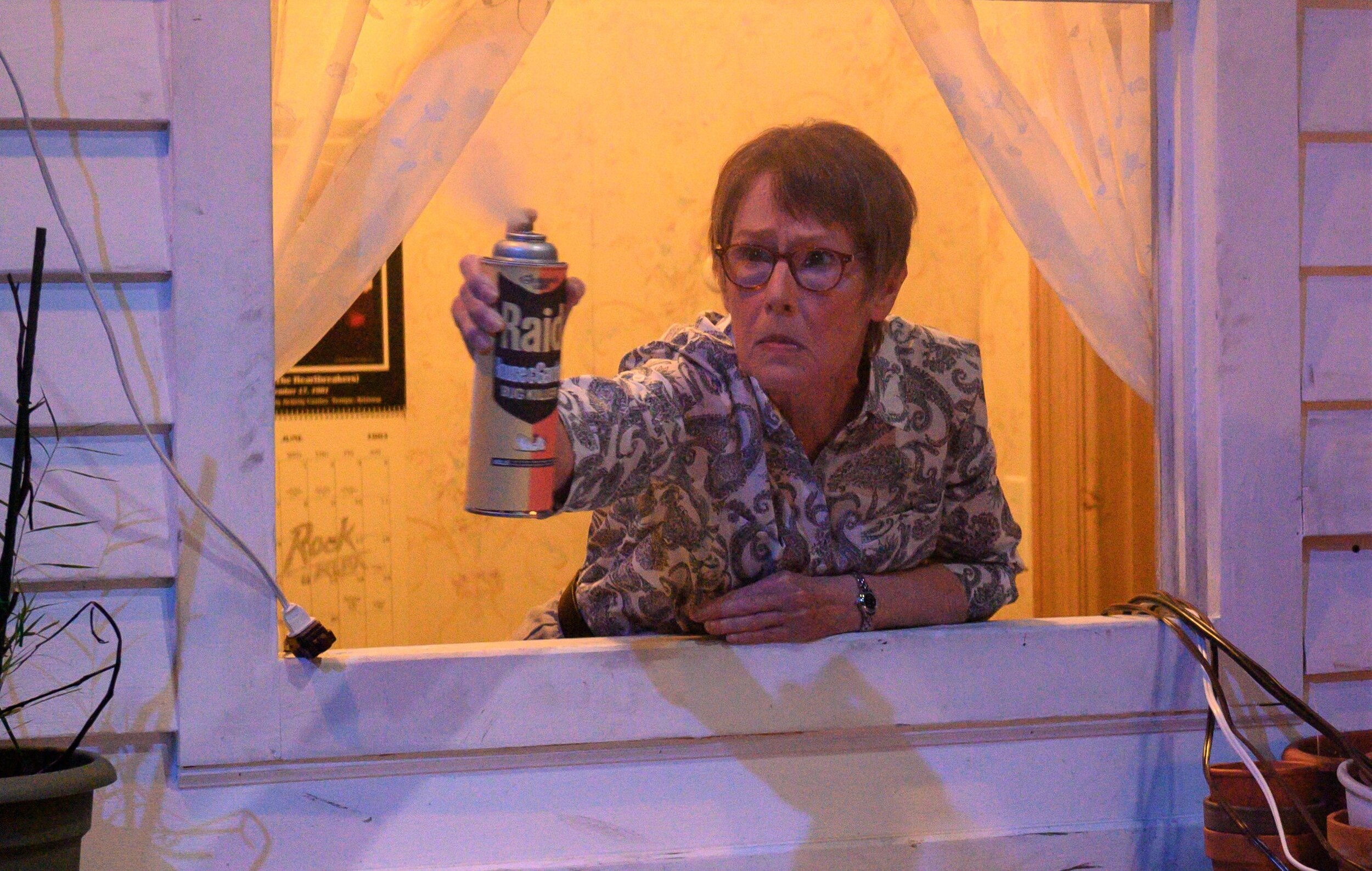Kristin Sieh (left) plays Harriet and Marga Gomez is Meg in Lisa Birkenmeier’s Dr. Ride’s American Beach House at Ars Nova.
Dr. Ride’s American Beach House, a new play by Liza Birkenmeier, is an intriguing slice of life set on a St. Louis rooftop on Friday, June 23, 1983, the night before Sally Ride became the first American woman in space. If younger members of today’s LGBTQ community often take for granted the plight of their elders, Birkenmeier’s play bravely imagines what it was like when being gay involved claustrophobic secrets, blind struggle and a stepping into the void to create a reality without social or cultural precedence.
The play focuses on the relationship between two women: Harriet (Kristen Sieh) and Matilda (Erin Markey). Harriet is twiggy and tomboyish and has a grad student boyfriend with whom sex is “disgusting.” Matilda is a naturally voluptuous attention-grabber with a sick daughter at home. They have known each other since Catholic school and now, after grad school, work in a restaurant. Meeting on the rooftop for their “book club” forms the pretext to escape their restrictive heterosexual lives. On the rooftop, they can be physically affectionate away from the world of men. Or, as Matilda keeps singing, “We’ve got a groovy kind of love.”
Sieh with Erin Markey as Matilda. Photographs by Ben Arons.
Their amorphous relationship affects the dialogue. Conversations are full of half-sentences and finishing each other’s thoughts, sometimes tripping into irritations as only the emotionally entangled can do. And yet the sexual nature of their relationship is never fully disclosed. The difficulty of conveying this vagueness leads to a certain dramatic softness while they are alone onstage.
The play snaps into focus with the arrival of Meg (Marga Gomez), a butch punk nurse who works nearby. Matilda has invited Meg in order to open up the book club, and Meg brings a jolt of energy to the play. Cocky, assured and self-defined in a way that the other women are not, she radiates self-awareness and a blue-collar swagger. She has also brought a bottle of wine so she won’t have to sit at home drinking alone.
What the women are finding on the rooftop is nascent community. The specter of Ride hangs over the evening. The astronaut, a hero on the cover of Time magazine, is a grown-up tomboy, and, according to Meg, a lesbian. While the women are struggling under the big blue sky, Ride is about to inhabit it and literally leave the planet, just as they wish to leave their restricted lives as daughters of duty.
The architecture of the play is a quirky series of plateaus. Birkenmeier conveys submerged emotion through conversations and interactions. The writing is well-crafted, if somewhat slow at the start. The playwright does a particularly fine job of portraying ambiguities of gender and desire at a time when there was little expression for such things.
Sieh conveys Harriet’s physical discomfort in her body. Feeling alien and yet curious about her female power, she is cold, analytical and dorky when describing a tryst with a man she met at the hospice where her mother is dying. More than any other character, there is a sense that she is trapped in her body.
Susan Blommaert plays Norma, who maintains the building in St. Louis.
Markey as Matilda is big and sensual. The former star of her high school musical, she often breaks into song and radiates an earthy naturalness. Gomez as Meg is an inspired presence. Whether manspreading on a chair or air-drumming to hardcore punk on the double-cassette boom box, she’s spirited, angry and ready for more pleasure in her life. She is a delight.
On the periphery of the evening is Norma (Susan Blommaert), an older woman who lives with her sister and maintains the building. She refers cryptically to her “ex-friend Rosa” and keeps coming up to the roof to complain. Although she is from another generation, there is a sense that she too belongs in this “book club.” Flustered and a fussbudget, she dispenses tough advice: “At a certain point you have to think: ‘Well, nobody likes you.’ What can you do about it? You have to choose the things you care about.”
Director Katie Brook’s production is naturalistic with a fantasy sequence toward the end of the play in which Matilda and Harriet become Ride and her secret lover at the astronauts’ beach house. Kimie Nishikawa’s set is simple and effective: a rooftop with a window and siding, a skylight, and the back wall and ceiling painted sky blue. As day becomes dusk, a string of party lights and butterfly lamps turn the rooftop festive.
Dr. Ride’s American Beach House is full of subtleties that might be lost on the uninitiated. But it’s an authentic, revealing, and ultimately rewarding new play.
Dr. Ride’s American Beach House runs through Nov. 23 at Ars Nova (27 Barrow St.). Evening performances are at 7 p.m. Monday–Wednesday and at 8 p.m. Thursday–Saturday; matinees are at 3 p.m. Saturdays. For tickets and information, visit arsnovanyc.com.





